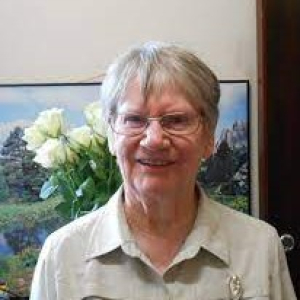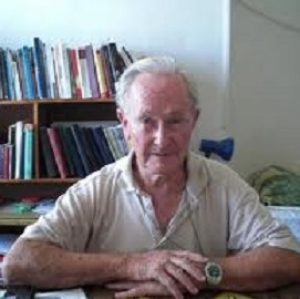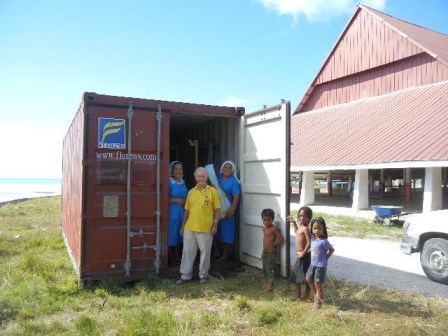Peter MALONE
O Matador/ The Killer
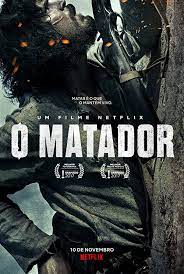
O MATADOR/ THE KILLER
Brazil, 2017, 99 minutes, Colour.
Diogo Morgado, Will Roberts, Etienne Chicot, Maria de Medeiros.
Directed by Marcelo Galvao.
This is a brutal and grim Western – but a Brazilian Western, a Brazilian version of spaghetti Western with whatever culinary title would be appropriate.
The film is very distinctive in its north Brazil desert settings, the small towns, the outlying houses, and the contrasting mansions of the wealthy. The story opens in 1910 but the main action taking place in the 1930s and 1940s – various glimpses of bikes, cars, planes, but still very much looking like a 19th century landscape and situation.
The film opens with a man travelling with two children, today in by suspicious looking types, telling them here’s good at telling stories. And he does, meaning that the film relies on the narrative voice-over to help audiences know what is going on (and, it is often quite complex and difficult to follow), the action and characters just dramatising what has been said.
The film focuses on abandoned baby, cared for by a gunslinger Seven Years (a bizarre necklace of seven years from his victims). The boy grows up in isolation. When Seven Years leaves and doesn’t return, the boy ventures into the world, experiencing violence instantly, puzzled by pressures stones but eager to have them, discovering sex with prostitutes. He also confronts the local landowner, a ruthless Frenchman, with an aristocratic wife and a dilettante his son. The killer has no hesitation in shooting people and is soon employed by the Frenchman to kill off all rivals and those who refuse to sell that land to him.
Then, there is something of a D talk, a focus on a landowner whose wife and child are brutally killed (the treatment of women in the film is harsh and misogynistic) and seeks revenge, confronting the dapper lead rest bespectacled, continually washing his hands, administrator of the law. And he is brutal to his wife and cousin. Eventually, confrontations, shootings, and the landowning Frenchman asserting himself.
The latter part of the film, the killer discovers that he has a young son, awkward in dealing with him, the son wanting to accompany his father, growing dangers, the father putting his son on a train to the furthest destination, a shootout and his being wounded.
And, with a twist, it emerges that the narrator of the story is that son.
Of casting interest, the killer is played by Portuguese actor, Diogo Morgado, who was quite effective as Jesus Christ in The Bible television series and in the edited film version, Son of God. The Frenchman’s wife is played by Maria de Medeiros, prominent in many films over the decades, including Pulp Fiction.
For audiences interested in the variety of westerns, especially those outside the United States, but may bewilder to women violent for ordinary audiences.
My Sailor, My Love
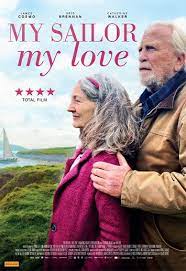
MY SAILOR, MY LOVE
Ireland/Finland, 2022, 103 minutes, Colour.
James Cosmo, Brid Brennan, Catherine Walker.
Directed by Klaus Haro.
Here is a drama that can be recommended for the older target audience, audiences who have many memories that they can draw on, happiness, regrets, unhappiness, hopes.
It is a co-production between Ireland and Finland, but with Irish characters and an Irish setting, the beauty of the County Mayo Coast and Islands, mostly overcast and cloudy, perhaps symbolic of the lives that the people lead.
At the centre of the film is an old sea captain, Howard, played by veteran character actor over the years, James Cosmo. He has retired but has many memories of his days at sea, sad memories of the death of his wife, abrupt and sometimes resentful of the care from his daughter, Grace (Catherine Walker). He does have two other sons but they turn up only for his birthday. He is gruff, self-contained, but, in some surprising moments, we see him telling fanciful adventure stories to the delight of some little girls of the family at the local pub.
So far, some identification with Howard, but wariness about him and his gruffness. His exasperated daughter arranges for a local woman, Annie (Brid Brennan) to come twice a week for housekeeping – and she is almost immediately ousted by Howard. We like Annie, her daughters working at the pub, the little grandchildren, and are pained when she is treated so badly. But, fortunately, Howard comes to his senses, get some flowers, comes to apologise to Annie who lets him know how hurt she is.
But, she does come back, Howard mellows (perhaps a bit too dramatically quickly for the film) but, it is a joy to see him come alive, share so much with Annie, she hearing his story and the death of his wife, he hearing her unhappy marriage and her husband’s death. We are very happy to see them both so joyful, sharing so much, he come alive again.
Parallel to this story is Grace’s own story, a marriage which is breaking, her going to therapy and not finding it helpful, her work at the hospital and her being fired, her paying attention to her father, employing Annie, and, perhaps to be expected but regrettably so, her bad reaction to finding the bond between Annie and her father, denouncing her father as a self-centred man in the past, suggesting that he is exploiting Annie.
All of us who have had sadness in the past in our lives will be caught in the emotional crossfire, empathising with one, emphasising with another, trying to understand what is going on.
We get to like Howard very much, even as we acknowledge his being away from his family at sea, even more so as the years passed, the teenage Grace looking after her mother, welcoming her father home, a sense of obligation to care for him in his age and health situation. And we get to like Annie, her joy in her experience of getting to know and love Howard.
So, here is a film that can be recommended to an older audience, no off-putting violence, sex, language, the film having a PG rating because of mature themes.
- An Irish story? Finland collaboration?
- A film for older audiences, identification with the characters, their situations, crises, regrets, loves, hopes?
- County Mayo, the coast, the Bay, the Ireland? Overcast, clouds? Atmosphere? The musical score?
- The focus on Howard, James Cosmo’s presence, his life as a sea captain, away from home, relationship with his wife, distance, reluctance to come home, the death of his wife, Grace, looking after her mother, waiting for her father, his having to retire, health, living alone, grumpy, crossword puzzles, Grace trying to care for him?
- Grace, her story, as a child, home from school, looking after her mother, her mother is drowning? A yearning for her father? His absences? Her marriage, the tensions, her mental state, illness, the support group, the other members, the therapy, the leader, Grace and her dissatisfaction, walking out? The tension with her husband, his further job, to go to Munich, the selling of the house, the visit of the estate agent, Grace and her resentment? Her work at the hospital, kindly with the patients? And needing time to care for her father? Her being fired? Getting the further job, with the other nurses? Her husband leaving, the empty house?
- Grace employing Annie, Annie and her age, her later telling her story, her aggressive husband and his death, her daughters, marriages, the grandchildren, Julie? Work at the hotel? Annie, agreeing to work for Howard, getting the bus, going to the house, preparing the meal, his treatment of her, to never darken his door again? Her being hurt?
- Howard, change of heart, the flowers, going to apologise to Annie, her reluctance? Howard and the grandchildren, telling the stories of the gorilla? The delighted response?
- Annie, her return, cooking the meal, Howard setting the place for her, eating together, his change of heart, inviting her to return? The return, cleaning the house, discovering the weaving machine and repairing it, his inviting her to stay, talking with her daughters, her coming, rearranging house, the photos of her family? Going for drives? The bond between them?
- Howard, the reason for his retirement, concealing it, his turn, the need for a checkup, his covering it over as blood pressure?
- Grace, arriving, the discovery, upset, the confrontation with the father, confrontation with grace, telling Annie that her father was completely self-centred? The contrast with his behaviour with Annie, the family, joyful in celebration, Grace upset?
- Annie leaving, Grace coming in wanting to stay, having now home, her father’s reaction?
- His collapse, hospital, the truth about his illness? Grace planning for him to be at home? Annie and the visit to the hospital? After keeping away? Grace at the hospital?
- Howard, the recuperation, and his visit, the proposal, the happiness?
- Howard’s death, and he with him, Grace’s reaction?
- Grace, coming to terms with her own life, deprivations, her attitude towards her father, love, need? The reconciliation with Annie?
Day and a Half, A
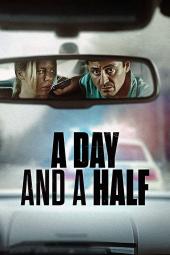
A DAY AND A HALF
Sweden, 2023, 94 minutes, Colour.
Alexej Manvelov, Alma Posti, Fares Fares.
Directed by Fares Fares.
This is a very interesting film on domestic violence, coming from Sweden, cowritten and directed by the Swedish actor, Fares Fares (born in Lebanon on but coming to Sweden with his family in his early years, a strong performance in Cairo Conspiracy). Fares also stars as the mediating policeman.
The day and a half of the title refers to a disturbed husband coming into a hospital to confront his wife, accusing her of infidelity, of taking his child from him. He creates a scene in the hospital, the police are called, he takes his wife hostage. This is a very strong beginning, the mad look of the husband, more revelations about his past and domestic violence, his infidelity with a Thai woman, his wife leaving him and sending their daughter to her parents.
The mediator is called in and he drives the couple, the husband pointing a gun always at his wife, first to her parents’ home to get the child, a violent confrontation with the racist father and condemning mother, then an attempt to get a plane to Albania from where the husband comes, then the possibility of a ferry to Poland.
Stories are revealed during the long journey, day and night, morning. The mediator, always in contact with the police, prefers to be a listener, suggestions, more gentle, telling his own story and his own failings – which does lead to a moving moment where the harassed husband offers his phone for the mediator to phone his young alienated son for his 13th birthday.
In many ways, the film is quite calm in its presentation of harsh and violent domestic troubles, the role of the mediator as a listener enabling the violent man possibly to become calm. And he is able to mediate some possibilities for forgiveness and reconciliation.
- The title, the timespan, the initial confrontation and abduction, the journey, the final resolution?
- The Swedish settings, the hospital, the police, on the road, the various landmarks, the different countrysides, near the airport, near the ferry? The musical score?
- The credibility of the plot, domestic violence, tensions in marriage, mental illness, infidelities, children?
- Lukas, the police, the mediator, his style of intervention, no weapons, friendly, not confrontative, engaging in conversation, enabling expression of feelings, making judgements to avoid violence, driving the car, contact with the other police, speaking frankly? Listening to the story, care for the wife? Eventually telling his own story, his limitations, infidelity, his son’s 13th birthday, the phone call? His psychological skills in dealing with Artan? Care for Louise? Taking the couple to Louise’s parents, getting the child, the interaction, the father’s racism, the violence? Eventually following the possibilities, the plane, government officials, the ferry? The issue of Artan and not being able to travel? Artan getting him to get the coffee, his standing and observing the finale? Looking at Artan, looking at Louise? A sympathetic character, with limitations, skills, and the tears after the phone call to his son?
- Artan and his story, Albanian migration, in Sweden, his marriage to Louise, the birth of the child and his devotion, his not understanding or appreciating Louise, her physical health, mental health, dominating, his infidelity with the Thai woman? His arrival of the hospital, his state of mind, emotions, demanding, the gun, the receptionist and her businesslike manner and his terrorising her, pushing her to the floor? The others in the waiting room? His not being able to wait, with his number?
- Louise, her story, work in the hospital, the pregnancy, after the birth, love for her daughter, her husband’s treatment, the fact that he had charges of violence against him, his infidelity, her taking the children to her parents?
- The gun, the situation, trying to escape from the hospital, the hostage situation, the phone calls, the police, Lukas arriving, his reaction to Lukas, keeping the gun always on his wife? The desperation, wanting a plane, his demands, Lukas seeming to agree with them, the phone calls, the continual contact with the police, Zzrtan hearing this? The car, the cloth at the back, the bystanders, the media, speculation?
- The long journey, the hours passing, Lucas driving, Louise at the back, always with the gun, Artan and his desperation, his eyes? The gradual unfolding of the story, Louise and her experience, point of view? Artan and his defence of himself?
- At her parents’ place, getting the child, tending it, the discussions with the father, his attitude towards Artan, Louise’s mother, even more severe, denouncing her daughter? The fight?
- The possibility of a flight? Permission granted? The possibility of the ferry to Poland? Moving towards the sea?
- The contingent of police following, the national group? The cyclist giving the food through the window?
- The discomfort of the trip, the cup for your own, hunger, tension?
- The arrival of the ferry, Artan giving Lukas the phone to phone his son, listening to the phone call, Lucas and his tears? Artan, the move taught surrender, emptying the gun, throwing it out the window? Telling Lucas to get the coffee?
- The final talking between Lucas and Artan, his getting out, the police swooping on him, taking him away?
- A dramatisation of contemporary domestic violence?
Offering, The
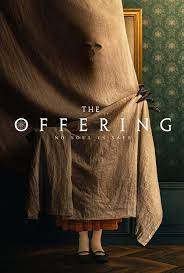
THE OFFERING
UK/US, 2022, 93 minutes, Colour.
Nick Blood, Emily Wiseman, Paul Kaye, Allan Corduner, Daniel Bens Zenou.
Directed by Oliver Park.
A small British horror film with a British cast, especially with veterans Paul Kaye (many episodes of Vera) and Allan Corduner (Sullivan in Mike Leigh's Topsy-Turvy).
However, the film was shot in Bulgaria and has a Brooklyn, New York setting. It also has a Jewish Orthodox setting which makes it seem more exotic than the regular horror films.
It opens very directly with an elderly Jewish gentleman subject to rituals, trying to be with his wife, a demonic appearance. The main part of the story concerns the son of an older, and the blood, returning to Brooklyn and his father with his British wife, Emily Wiseman, not Jewish. The father, played by Alan Corduner, conducts autopsies – and there are sinister happenings with the examination of the old dead man’s corpse. There is also the sardonic assistant, played by Paul Kaye.
There are various nightmares, especially on the part of the wife, and appearance of the dead man’s wife confronting the British woman, mysterious appearances, ritual explanations and ceremonies, circles… As well is a financial difficult background though ultimately, not much is made of that.
And, contrary to anticipation, the ending of the film is very grim.
- A British horror film, the New York Brooklyn setting, filmed in Bulgaria, the British cast?
- The title, the opening sequence, the old man, the eerie room, his rituals, the death of his wife, daughter, wanting them back, the Circle, the signs, the appearance of the creature? His death, taken to the morgue?
- The Brooklyn settings, New York, the bridge, the river, the streets, the house, the Orthodox setting, rituals, prayer, gatherings? The morgue, autopsies, atmosphere? Musical score?
- The Orthodox setting, Jewish history, religion, rituals, leaders? Mythologies?
- The narrative, Arthur and Claire, returning from England, he returning home, American, she British, giving up her job, pregnant? Not Jewish? The background of financial dealings, the house, losing jobs? Saul welcoming them into the house?
- Saul, his leadership, autopsies, widower, at prayer, his rituals? Attitude towards his son? Welcoming – but others memories of the past and the severity of his father? Leaving home? Saul and his kindly attitudes towards Claire and her pregnancy?
- Arthur, the autopsy, the dead man, his story, disfigurements, atmosphere and its effect on Arthur?
- Heimish, his character, working with the autopsy, antagonism towards Arthur, his remarks, criticisms? Sardonic? His getting the message from Arthur’s financial adviser, denouncing Arthur, showing the message to Saul? Arthur, his reaction, Claire and her surprise, her being accused of complicity? Confrontation with her husband?
- The body, the odd happenings, his being infected? His father, with the body, and the sudden death of his father? Heimish, his help, calling in Chaim, his knowledge, information, and his death?
- The atmosphere, evil possession, demonic presence, the appearance of the girl, Claire seen her at the wake, behind the curtain, disappearing? Are appearing to Arthur? Claire, her nightmares?
- Arthur, more and more involved, Heimish and his help? The threats to Claire, the appearance of the old man’s wife, apparition, seeming real, ghostly, the threats to Claire under the table, Arthur trying to rescue, the repetition of the action?
- The final confrontation and build up? The evil presence, the threats – and the pessimistic ending?
Ego, the Michael Gudinski Story

EGO, THE MICHAEL GUDINSKI STORY
Australia, 2023, 111 minutes, Colour.
Directed by Paul Goldman.
This is a documentary about entrepreneur, Michael Gudinski, his presence in the music industry in Australia from the 1970s to his death in 2021. It has been directed by Paul Goldman (Suburban Mayhem, Footy Legends) who worked with Gudinski with many music videos. The documentary was in process, possibly for a several part television series, when Gudinski suddenly died in 2021 at the age of 68.
Clearly, this is a film for audiences who know the music industry and/or want to know more about its vitality for over half a century. But, this is also a film for those who may not have a major interest in the music industry. It is a very interesting portrait of an Australian, an enthusiastic personality, significant in his entrepreneurial field, successes, failures, achievement. It is also an interesting film for audiences considering Australian culture over this period, what Australia was like in the 1970s, the influences in the 1980s, an intervention by Rupert Murdoch in the 1990s, the shift from record production and sales to social media and availability of product – the very interesting coda of Gudinski’s activity even during Covid lockdowns.
Paul Goldman and the editor keep the documentary moving. Fortunately, there is a great deal of footage available from the past and many witnesses from that period – and the director using the device of showing the interviewee in the present alongside photos and footage from the past. And, many of them, including Gudinski himself, have changed a great deal (to say the least)! So, there is a wide range of talking heads during the film, production associates and business partners, and, of course, members of the various groups, Ross Symons and Skyhooks from the 70s, Tim and Neil Finn from Split Enz, longtime friendship with Jimmy Barnes, Paul Kelly, then the strong bond with Kylie Minogue, and in more recent times, rather surprisingly, a cheery personal friendship with Ed Sheeran. There are significant interviews with John Farnham, Sting, Bruce Springsteen, Dave Grohl and different band groups. Significant is his contribution to promoting indigenous music, Archie Roach and Yothu Yindi.
So, what Australia looked and sounded like in the 1970s, brash, new styles of music, production, groups, bands, tours, behind-the-scenes. Then, great success in the 1980s, moving worldwide, the US, less so in the UK, awards. And, as mentioned, in the 1990s, the encounter with Rupert Murdoch and the role of News Corp taking over Mushroom Records which Gudinski had founded and fostered with its talent for 20 years. The early part of the 21st century was rather lean in terms of success but, never put down, the 2010s saw all kinds of changes in Australian society and communication. Symbolic is his filling the MCG for an international concert at the time of the 2019 fires. And we can admire Gudinski’s enterprise in 2020 organising a media concert with so much talent to encourage people during lockdown.
Behind-the-scenes there is the continued support and love of his wife, Sue, their long marriage, good interviews with his daughter, Kate, and his son Matt who joined him successfully in his enterprises.
Seemingly extrovert off the page, exuberant, jovial, meeting people everywhere – but a variety of comments indicating some more thunderous moments, moods, business battles.
This is a significant documentary on Australian culture.
Biosphere
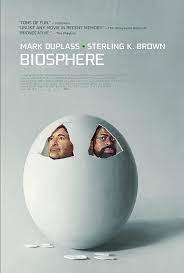
BIOSPHERE
US, 2023, 106 minutes, Colour.
Sterling K.Brown, Mark Duplass.
Directed by Mel Eslyn.
After watching Biosphere, audiences will have all kinds of conversations, all kinds of leads from this unexpected scenario. While reviews can be guides as to whether to see a film or not, many reviews are better read after the audience has seen the film. So, a suggestion that it might be best to see the film as it is rather than through the reviewer’s interpretation. That said, potential audiences alerted, here are some reviewer reflections.
Richard Matheson wrote an apocalyptic story, The Last Man on Earth (some film versions), touches of horror. Biosphere raises the question of The Last Two Men on Earth!
This is a science-fiction film. And all science-fiction films offer a variety of hypotheticals, scientific possibilities (and impossibilities), scenarios that range from the creation of life to space exploration. And, as with this one, they can be combined with apocalyptic possibilities, the end of the world. But, already these comments make Biosphere seem more seriously-toned than it is – though, ultimately, it raises all kinds of serious and depth questions. However, there is a comic and light tone throughout the film as we are introduced to a former President of the United States (obviously not one of the great statesman) and his science advisor who, in view of world destruction, has built a very comfortable pod for their survival, as many as the comforts of home as they can, help with them pass the years they have spent inside the pod. They have been friends since childhood, though he Republican and the scientist Democrat, and they share memories from their past, and banter through their survival, jogging, computer games, watching Lethal Weapon, experts on Super Mario…
So, while it has been apocalyptic, and there is a menacing greenlight outside the pod, this begins is a cheerful story about friendship, Sterling K.Brown, Ray, African-American scientist, intelligent, a reader, inquiring, contrasting with Mark Duplass, Billie, the rather affable layabout ex-president.
We are made alert because Billy starts to read Kiss of the Spider Woman, not understanding the gender issues the novel raises.
Then the screenplay moves to issues of evolution, the death of the male fish that they have been keeping, Sam, to mate with Diana, to keep them supplied with food. Diana dies. And the discovery of what can happen in this evolutionary situation for survival, Sam transforming to female. And, our immediate initial wondering: can this be true for humans and the prolonging of the human race. In fact, it does not take too long before this theme moves into action, Billy transforming, Ray puzzled, challenges the scientist to investigate. Which, of course, then leads to the issue of reproduction, pregnancy.
And the screenplay does take us all the way, challenging our ordinary stances, making us wonder about evolution and the future, and always the underlying contemporary questions about gender identity, gender relationships, love, the erotic, friendship…
The film takes place on the one set, rather claustrophobic in its way, is very much a dialogue-oriented screenplay, literature and media references, extensive vocabulary, which means that it offers an interesting, provocative, emotional and intelligent challenge.
- The title? Space? The enclosed pod? Life, survival?
- The tone of the film, comic, satiric, serious, science, evolution, gender, male-female…?
- The set, enclosed, the biosphere, main room, bedroom, the circuit for jogging, cooking, the library, television, computer games…?
- The audience gradually learning of the situation throughout the film, the past president, his science advisor, their friendship since childhood, different political affiliations, the responsibility of the president, destruction of the world, the building of the pod, a refuge?
- The character of Ray, African-American, science background, Democrat, advisor to the President, scientific investigations, building the pod? Strong masculine identity? The relationship with Billy, childhood, the presidency, the catastrophe, living the years in the pod, to bachelors, comforts?
- The character of Billy, as a child, friendship with Ray, audiences accepting him as President, the poster, soft character, accepting the situation, the years with Ray?
- The science fiction element? Hypotheticals? The apocalyptic scenario? Credible? The plausibility of the plot, survival?
- The issue with the fish, theories of evolution, the male transforming to female? Audiences anticipating the change with Ray and Billy? Billy proposing the theory? Ray’s response? The gradual transformation for Billy, genitals, the ceremony with the penis, the female transformation, vagina, breasts, the psychological transformation, female behaviour (stereotypical?) Sensitive, kitchen, language, treatment of Ray?
- The issue of pregnancy, the discussions about impregnation, discussions of reproduction, without erotic background, the final solution, the cover, the whole, Ray providing the semen, the effect on the two, the relationship, affection? The months of the pregnancy, the change in Billy, Ray and his responses? Setting up house?
- The mystery of the green light, his presence, eventually seeming to attack, the holes, the cloth, the container for the fish, the death of the fish? The prospects of starving?
- The question of whether there are other pods, other survivors? Coping with the crisis, the future, lack of food, the issue of bringing a child into this world?
- The sudden ending of the film, leaving everything to the audience to reflect on and discuss?
Nungalinya College, Darwin, celebrates 50 years.
Nungalinya College, Darwin, celebrates 50 years.
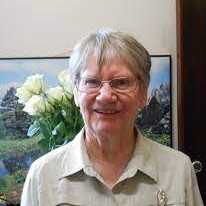
Robyn Reynolds OLSH was the first Catholic Dean of the College
Nungalinya College is an adult education college based in Casuarina, a suburb of Darwin in the Northern Territory of Australia. Founded in 1974, it describes itself as a "Combined Churches Training College for Indigenous Australians", and provides training for Christian ministers and community leadership.
A Story of Freedom & Unity: Aboriginal College celebrates 50 years of Empowerment
Cruz Ignatius in Yarning, Catholic Diocese of Darwin.
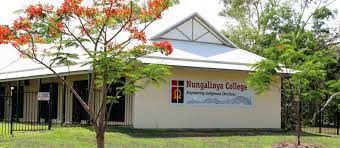
The resonance of unity and the echoes of liberation reverberated at Nungalinya College in Darwin on the 19th of August 2023. A congregation of more than 300 individuals converged to commemorate the remarkable journey of this sacred place over half a century. Founded in 1973 to cater to Aboriginal adult students and nurture future leaders, the College’s Golden Jubilee unfurled in a splendid tapestry of events.
The celebratory day unveiled a mosaic of experiences, including dual screenings of an evocative documentary titled “Freedom,” masterfully crafted by Warwick Vincent (teaser above). Attendees embarked on guided explorations through the captivating Garden of Eden and the poignant Way of the Cross. Creative expression flourished in art and weaving workshops, followed by a sumptuous dinner that nourished both body and soul. The evening crescendoed under the starlit sky with fervent prayer, joyful songs, and spirited dancing, choreographed by impassioned leaders representing various communities across the Territory.
FREEDOM: At the heart of Nungalinya College’s narrative lies the distinction of being a Registered Training Organisation (RTO 01). This distinction signifies its pioneering status as the “first registered training organisation of its kind in the country.” Over the past five decades, a captivating tale of Education, Faith, and Culture has unfolded, culminating in the bestowal of spiritual and physical freedom upon numerous remarkable Aboriginal families across the Northern Territory.
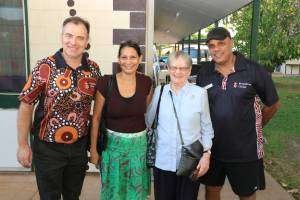
L to R: Current Principal Ben Van Gelderen, with four generations of College Catholic Deans, a role that calls one to give their whole heart to students on campus: Regina McCarthy (first College Aboriginal Dean), Sr Robyn Reynolds (First Catholic Dean), Dean Chisholm (current Catholic Dean) & Carol Muller (Catholic Dean from 2013-2020).
Each Catholic Dean is supported by the Catholic Church in NT, and by Catholic Missions and the MSC Mission.
UNITY: The very fabric of Nungalinya College is interwoven with unity. Conceived as a collaborative initiative of the Anglican, Catholic, and Uniting Church in the Northern Territory, its impact resonates on both educational and spiritual fronts. These pastoral denominations together oversee the education and pastoral care of countless Christians who have graced the College since its inception. Each year, the College warmly welcomes 300 individuals, most hailing from the remotest lands of our Northern Territory.
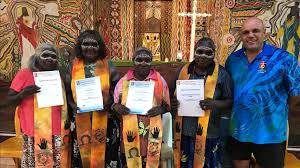
Gratitude extends to the Larrakia people, who have lent unwavering support to the College’s vision since the 1970s. Their generosity in gifting the land, as well as naming the College in honour of their ancestral rock along Casuarina beach, exemplifies their commitment. A pivotal milestone was reached in 1995 when the College welcomed its first Aboriginal principal, the revered Larrakia Man, the late Rev. Wali Fejo.
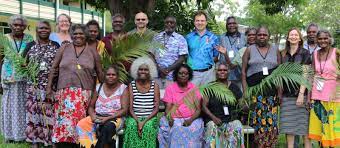
Melbourne MSC Photos this week
Melbourne MSC Photos this week
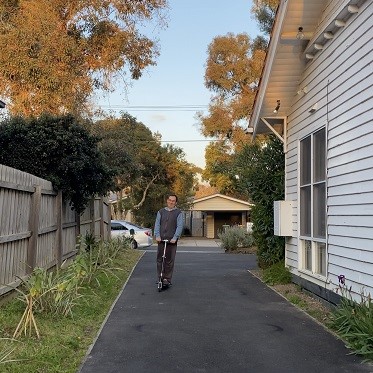
Getting to YTU and around Blackburn. Vincent and his scooter.
And Trieu and his scooter.
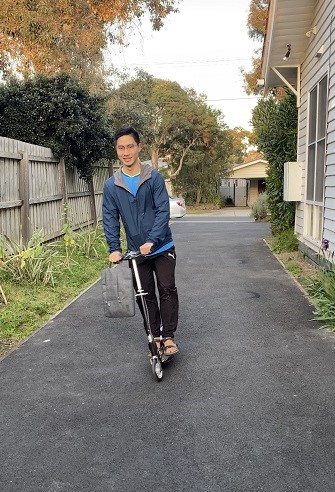
Meanwhile the Culture Night at YTU, September 1st, organised by the Student Representative Council, Hoa is Secretary and editor of the weekly student Newsletter. Trieu is on the committee.
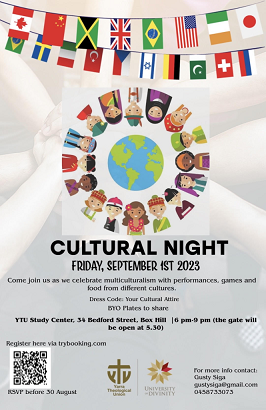
And at St Timothy’s, Forest Hill, the Vietnamese community, Khoi welcoming Archbishop Peter Comensoli.
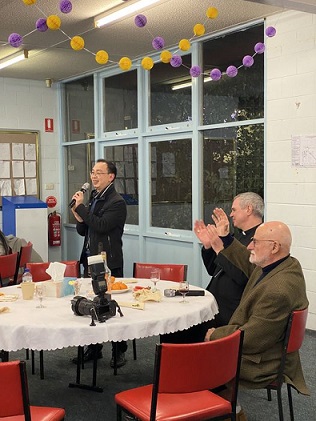
And Stephen Hackett visited the Heart of Life Centre, Malvern, pictured with the fulltime Siloam participants (including Petrus, right, and John, left, our MSC confreres from Indonesia. Sister Relida, OLSH, PNG, next to John.
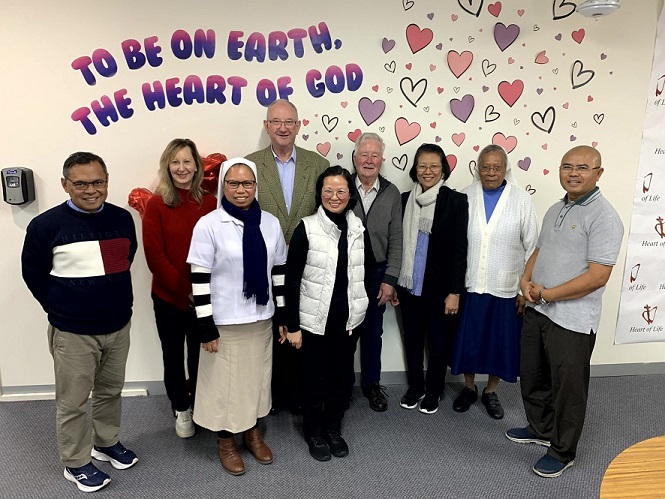
An OLSH story – Sr Mary Stevens’ Golden Jubilee
An OLSH story – Sr Mary Stevens’ Golden Jubilee
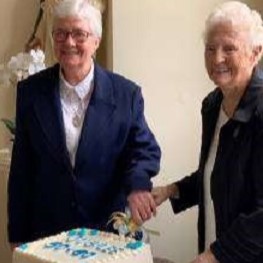
From Yarning, diocese of Darwin, by Cruz Ignatius
“My soul magnifies the Lord. My spirit rejoices in God my Saviour.”
With these words Sr Mary Stevens olsh, celebrated her 50th year Jubilee Anniversary of profession as a Daughter of Our Lady of the Sacred with her Religious family at Kensington, NSW on January 12, 2023.
Sr Mary stated that religious life has been a “A rich experience for me. It has taken me into areas of ministry and places that I would never have imagined when I was professed fifty years ago. I have been blessed in living and working with many sisters over the years and privileged to meet and work with so many dedicated and wonderful lay people who have remained my friends.’

Sr Mary was born into a family of 1 son (deceased) and 7 girls, growing up on a dairy farm at Nabiac, NSW until the children were of high school age, when the family moved to the town of Taree.
On leaving school, Mary initially worked as a receptionist, however, she always dreamt of helping the sick, poor, and disadvantaged through nursing. So, in 1964 she moved to Sydney and began her nursing studies at OLSH Hospital, Randwick. Sr Mary graduated with her Nursing Diploma in 1968 achieving 8th place in the State. She would later gain her midwifery and Paediatric diplomas, as well as Geriatric and Community Health Certificates.
Mary entered the OLSH Novitiate in 1970, was professed in 1973 and finally professed in 1976.
After profession she initially worked in the infirmary at Kensington Convent. In 1974 she became one of the founding members of St. Joseph’s Aged Care at Kensington. After completing her midwifery/paediatric studies she began her missionary life at Port Keats, NT as sister-in-charge of the clinic and hospital. Here, she was able assisted by lay nurses and aboriginal health workers, female and male. Over the years, Mary would return to Port Keats twice more. She also spent time at Santa Teresa and at Daly River missions.
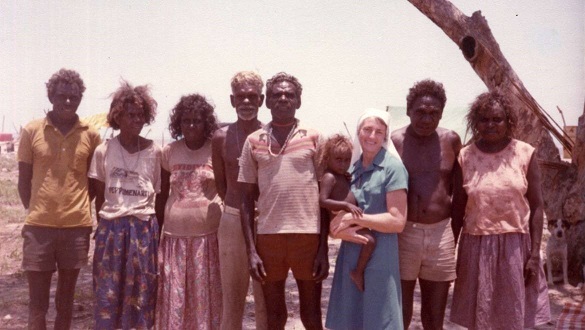
Sr Mary’s calling took her to the Philippines from 1991 – 2002 as Leader, OLSH Region which changed her work from nursing to administration/leadership of young women who were entering the order, forming them to take over the many roles of leadership. As the Region grew convents were built on different islands and the sisters began lovingly to care for the poor and needy. In 2002 the Filipina Sisters assumed the leadership of their Region.
Following a sabbatical, Mary spent a year St. Mary’s Convent, Darwin and in 2004 was assigned to Timor Leste. Here Mary did medical clinics for the people in the mountains.
In 2008 – 2013 Mary was missioned as Director of Holy Family Care Centre located in Ofcolaco, South Africa. The Mission was established during the AIDS epidemic and was set up for children left orphaned, their parents having died from Aids. There were 70 children from babies to teens. What a wonderful ministry! Jesus said: ‘Let the little children come to me.’ Mary stated that ‘not a day passed that I wasn’t conscious of Jesus’ words. These beautiful children gave me far more than I ever gave them!’
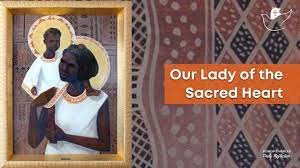
In the NT again from 2014, Sr Mary is the leader of the NT OLSH communities of Alice Springs, Wadeye, Wurrumiyanga/a Vinnies volunteer and Spiritual Director of the OLSH Associates and a member of the OLSH Provincial Team. She is also the Leader of South Australian Communities – Kilburn, Prospect, Fulham Gardens, Whyalla, and Roxby Downs.
This is just a glimpse of Mary’s rich, varied and full life which she describes as being blessed with ‘life in abundance and joy to the full’, and says: ‘I would do it all again tomorrow!’
Members of the Provincial Council.
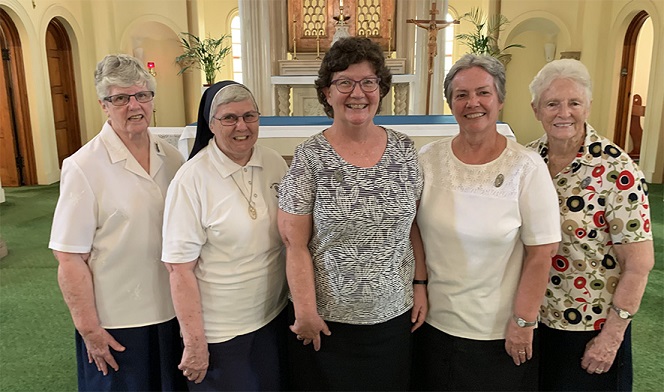
RIP Albert Yelds MSC
RIP Albert Yelds MSC

Peter Hendriks writes: Albert Yelds died at St Joseph’s Home just before 9:00 pm last night, September 3rd. He was in the presence of his sister, Marie, and Peter Guy.

He was 98 years of age and had been a professed MSC for 77 years, ordained 70 years, the senior member of the Province.
Albert worked in MSC Colleges, was committed for many years to a travelling ministry of devotion to the Sacred Heart. In the 1980s, he served in India. After returning from India, he went to Kiribati where he spent the best part of more than thirty years. He retired to Kensington Monastery and then to St Joseph's.

